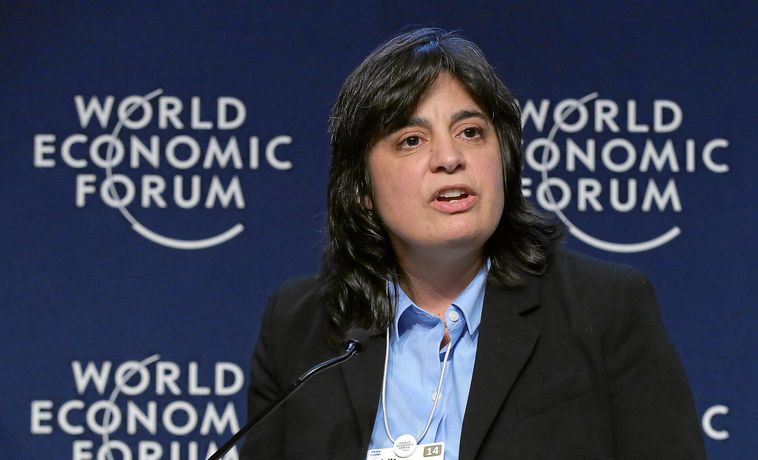Alumna wins international physics journalism prize
Cynthia Graber ('00), alumna of the Graduate Program in Science Journalism at Boston University, was recently awarded the Institute of Physics Journalism Prize, a top award in the physics journalism world.
In the feature, Electric Shock: Could electricity be the key to unlocking human regeneration?, the Somerville-based freelance print and radio journalist looks at the role electricity plays in regenerating living cells.
This is only Graber's most recent honor. She was one of 12 journalists from five different countries selected to be a 2012-2013 Knight Science Journalism Fellowship at MIT and was also an inaugural fellow at University of California Berkeley's 11-hour Food and Farming Journalism Fellowship in 2013.
Her award-winning feature investigates the work of Prof. Michael Levin, director of Tufts Center for Regenerative and Developmental Biology and is published at MATTER. As the Institute of Physics wrote:
The judges of this year’s prize were unanimous in their decision to award the prize to Cynthia, highlighting and praising Cynthia’s ability to bring the intrigue of Professor Levin’s work to life while still accurately portraying the scientific process.
The judges were particularly delighted to be awarding the prize – designed to inspire the next generation of physicists by encouraging journalists to grapple with often complex topics and help spread excitement about the subject – for an article which highlights the inter-disciplinary nature of physics research.
Professor Dame Athene Donald, an honorary fellow of the Institute of Physics (IOP), Professor of Experimental Physics at the University of Cambridge and one of the prize’s judges, said, “It was a joy to read this intriguing article by Cynthia and it was good to see the winning entry demonstrate such an interesting example from the breadth of issues for which physics is so pertinent.
“Too often physics is thought of as quite a narrow, self-contained subject, instead of as a way of thinking that underpins many other disciplines.”
On receiving the award, Cynthia responded, “While I don't often report stories that are exclusively about physics, physics has been a primary force in many stories I've written throughout my career, from renewable energy to biology.
“I'm thrilled to be recognized by IOP and STFC for this story, which I believe highlights one of the crucial roles physics plays in our biology. Levin's research demonstrates that surprising new insights can come from bridging two often divided realms.”
Along with receipt of the 2013 trophy, Cynthia will be attending the AAAS meeting in Chicago, the annual meeting of the world’s largest general scientific society, and visiting a range of physics facilities in both the US and the UK.


